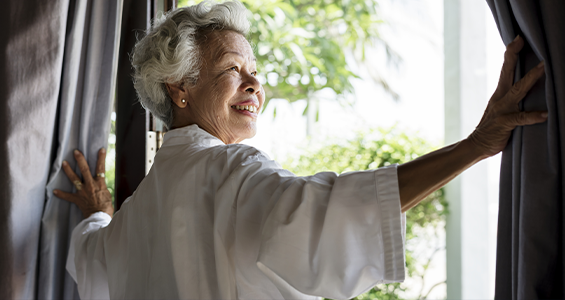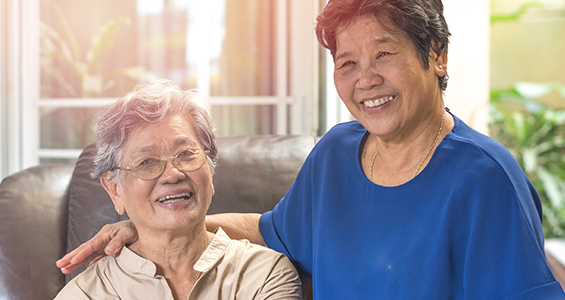

Warning Signs of Elder Abuse
Abuse can happen to anyone, regardless of culture, gender, race, or financial status. Recognizing elder abuse is a key step in addressing the growing issue within our community.
Here are key warning signs and indicators you can look out for when trying to identify if a senior is experiencing abuse.
- Withdrawn, fearful, anxious, depressed, or socially isolated
- Unexplained injuries, marks, bruises, broken bones, and sprains
- Poor living conditions, lack of food, clothing, and other necessities
- Dehydration, poor nutrition, medical concerns, and poor hygiene
- Medication misuse, frequent visits to the emergency room or clinics, and doctor shopping
- Unusual legal activity related to a seniors will, POA, or other legal documents
- Caregiver/ family member is stressed or has low tolerance for the senior
- Sudden physical or cognitive decline
- Caregiver/ family withholding money, or the senior is suddenly missing personal belongings
- Caregiver/family insists on being present at all times and always speaks for the senior when in public or at medical appointments
- History of abuse, behavioural concerns, lack of coping skills, psychiatric and addiction concerns, and family conflict


Caregiver Indicators
Caring for an older adult is an honour that can carry great responsibility and at times can feel demanding. When a caregiver becomes overwhelmed, they may not have the skills or support to care for their loved one and may act in an abusive manner. The Elder Abuse Prevention Program is here to provide help and support to seniors and their caregivers with the goal of creating a safe environment for all. Learn more about the Elder Abuse Prevention Program.
Here are some key indicators to help you identify a possibly abusive relationship between a caregiver and a senior:
- Unaddressed mental health and addiction concerns
- Poor social relations, friction within the family, and controlling behavior
- Financially dependent on the senior
- Occurrences of theft and fraud
- Unrealistic expectations, burn out, neglect, and poor coping skills
- Caregiver has a negative attitude, lack of accountability, blaming, degrading, creates negative interactions, and acts with verbal and/or physical aggression
- The caregiver manipulates, humiliates, threatens, and intimidates the senior
- Poor living conditions, the caregiver speaks for the senior, and there is evidence of emotional/psychological abuse
If you would like to report elder abuse, call 1-866-299-1011 or email infoeasterncounties@carefor.ca.
If you’re unsure if you or a member of your community is being abused, take one of the following self assessments from the National Centre for the Protection of Older People and Gerontological Society of America. Help prevent the abuse of an older adult:

